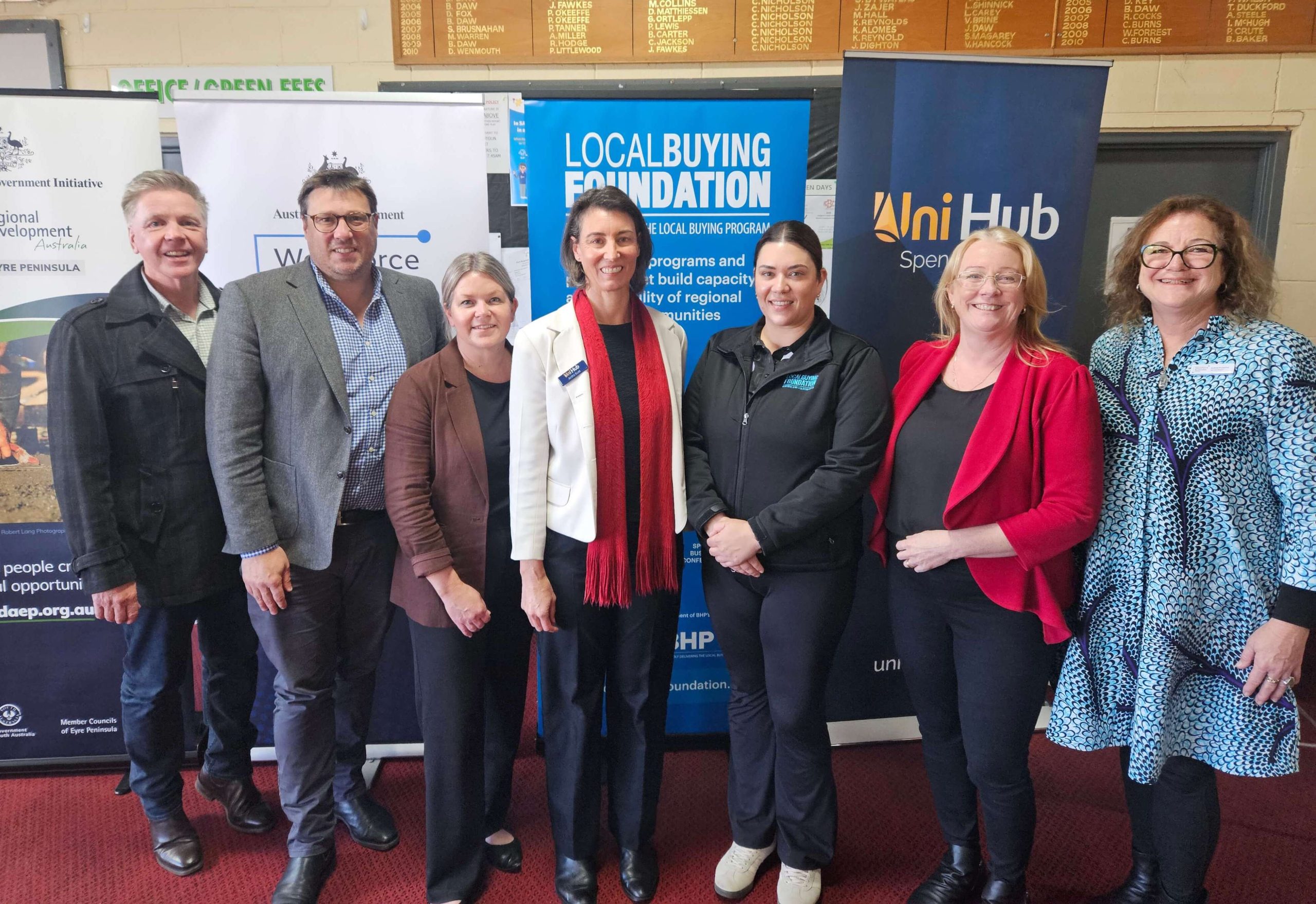More than 100 government, industry and regional leaders came together in Port Augusta recently to tackle one of the region’s biggest challenges – and opportunities: building a skilled local workforce to meet the demands of a rapidly changing economy.
Hosted a regional partnership including Uni Hub Spencer Gulf, Spencer Gulf Cities, TACTIC, Local Jobs Program, Regional Development Australia, Resources & Engineering Skills Alliance; and supported by the Local Buying Foundation, the summit focused on workforce development across key sectors such as resources, energy and manufacturing.
“The summit focussed on skills common across employers and different sectors,” said Anita Kuss, CEO of Uni Hub Spencer Gulf. “Representatives from state, federal and local government also attended as they are a big part of the solution”.
Building on the success of previous summits, this year’s event explored how employers, training providers, government and regional organisations can better coordinate efforts to develop a sustainable, locally-based workforce.
“There is a focus on future skills and workforce needs that major projects, contractors and big companies across our region all need,” Ms Kuss added. “Whether it’s mining, renewable energy, manufacturing, civil construction, or space and defence, there is often commonality in skills all of those projects are looking for.”
A key theme throughout the day was the need to shift away from short-term workforce solutions and invest in long-term strategies that benefit local people, business and communities.
“We need to ensure that first and foremost we are building capacity in our region around workforce and not just defaulting to a fly-in fly-out option,” Ms Kuss said.
Uni Hub Spencer Gulf is one of many regional organisations already playing a hands-on role in developing the skills pipeline by working with employers and universities to support local delivery of qualifications in high-demand fields such as engineering, surveying and construction management.
“More organisations are taking a longer-term approach, for example employing local uni students in paid work as cadets and supporting them through their studies,” Ms Kuss said. “Training and employing locals makes sense. These are people who are already part of our communities, who already live here and have a house here. They are committed to staying.”
Ms Kuss emphasised the region’s potential to become a major economic powerhouse – if the right steps are taken now.
“Futureproofing the steel works and the smelter is a big part of how we reposition as a region economically,” she said. “It is a really critical time for the Upper Spencer Gulf – we need to work together to ensure locals benefit from this transition as much as possible.

